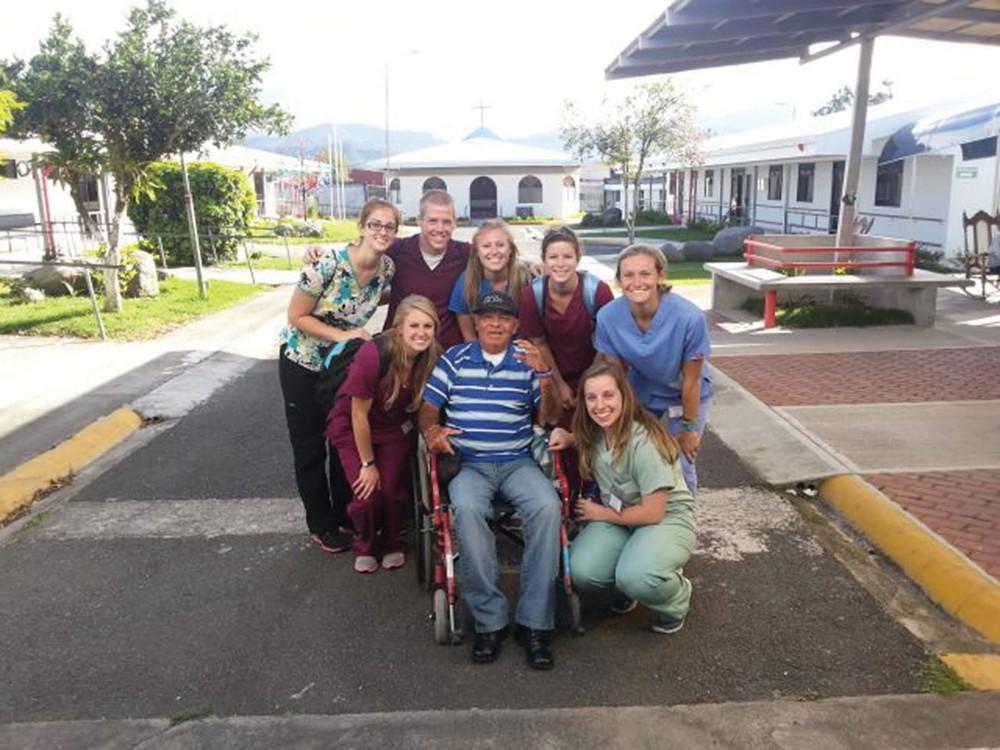Pack your scrubs and sunscreen

Courtesy / Swane Grubb A group of students majoring in physical therapy went to Costa Rica over break for a service learning trip. They spent a week with locals and gave free treatments to them.
Jan 9, 2014
The clatter of cooking is heard downstairs. At 7:40 a.m. breakfast is served. Fruit is on the menu. The team members put on their scrubs and head down. They have to be ready by 8:30 a.m. to be picked up by a taxi and taken to the community church in Los Diques, Costa Rica.
Six students studying physical therapy at Grand Valley State University and a student from the University of Pittsburg then spend the day transforming the church into a clinic and passing out appointment cards. They want to make time to treat as many adults and children as possible.
This was the schedule for the students who embarked on the International Service Learning trip to Costa Rica over winter break, where a majority of the population from Los Diques lacks access to good health care, and treatment such as physical therapy is often unavailable.
“It really changed my outlook on how much simple gestures are taken for granted in general society and helped me to appreciate the gratefulness of others,” said Mary Osborne, a senior at GVSU who went on the trip. “When a man is able to come back to you the day after you treated him and says this is the first time he has gone without pain in months, it is extremely rewarding.”
The trip, which spanned from Dec. 14 to Dec. 22, was organized by Ben Leppek, a junior at GVSU. In addition to working at the clinic, the team also spent two days volunteering at a nearby nursing home. There they met Miguel.
“He was happy every time we saw him, and he loved to interact with us,” Leppek said. “He was the first one to do the stretches and started dancing every time. It was tough to leave him when the day was done, but we could tell that he appreciated everything by the big smile on his face when we left. The last thing he said to us was to remember him. I aspire to be as outgoing and optimistic as him. He will never be forgotten.”
In Costa Rica, scoliosis is a common medical condition. While many cases are mild, some children develop spine deformities that can be disabling, especially if they go unmonitored.
“It was nice to be able to catch it when kids were young so we could provide them with exercises to slow down the process,” Osborne said. “It’s a lot different when the situation is right in front of you and you don’t have a textbook to look up what to do. Hands on learning and personal experiences are always much more beneficial than book knowledge, and I couldn’t be more thankful for having this opportunity.”

























